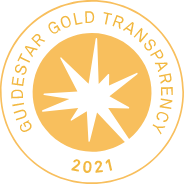
By Candace Nagaraja, Featuring Alessandra Henderson, Co-founder and former CEO of Elektra Health
Introduction
Menopause has long been underrepresented in healthcare discussions. However, recent cultural shifts and emerging research have brought it to the forefront. Understanding the multifaceted needs of women during this transition is crucial for healthcare providers and innovators.
Menopause Enters the Zeitgeist: Why Now?
Each day, approximately 6,000 women in the United States reach menopause, defined as one year without a menstrual period. This transition typically occurs between the ages of 45 and 55, with the average age being 51. Despite its prevalence, menopause has often been stigmatized or overlooked in medical training and public discourse.
Clinically, menopause is associated with various symptoms, including hot flashes, night sweats, mood changes, and increased risks for osteoporosis and cardiovascular disease. Economically, the annual direct costs of managing menopausal symptoms in the U.S. are estimated at $3 billion.
“…We are in the absolute perfect moment for perimenopause and menopause to take center stage… culturally, we’re talking about it. We see celebrities, politicians, public speakers who are speaking up and out… women are speaking up about taboo topics all across society…”
- Alessandra Henderson, Co-founder and former CEO of Elektra Health
As millennials begin to enter perimenopause, they are bringing new visibility and destigmatization to care provision, in a similar way to how they brought transparency to menstrual care throughout the twenty-tens, for example with Thinx fruit-focused advertisements.
Meeting Women Where They Are
Despite increased awareness, access to quality menopause care remains limited. Less than 20% of OB/GYNs receive menopause-specific training, and fewer than 5% of eligible women are currently using hormone therapy. A study published in JAMA found that 84% of women report experiencing menopause-related symptoms that impact their quality of life, yet more than half delay seeking care due to stigma or lack of provider awareness.
Appealing to this audience requires more than convenience. These women are typically in a high-intensity life stage, balancing work, caregiving, and personal health. The best-performing platforms prioritize flexible access (telehealth appointments, asynchronous check-ins), reliable information (provider-backed content), and validation through peer experiences. When done right, care becomes not only accessible but affirming.
“…Women in menopause are savvy, tech-savvy consumers who are leveraging telemedicine to access care that is convenient and meets them where they are. They are tracking more metrics, speaking to their providers more, and actively seeking validation online… Reddit, for example, to validate some of their health decisions…”
- Alessandra Henderson, Co-founder and former CEO of Elektra Health
Who’s Getting It Right?
Direct-to-consumer (DTC) platforms have emerged to fill the care gap. According to Rock Health, over 60% of women aged 45–60 report being willing to try a digital health platform for menopause if it offers clinical credibility and convenience. Companies such as Alloy, Evernow, and Elektra offer a range of services—from prescription-based hormone therapy to educational content and virtual consultations.
These models reduce friction and stigma, but vary in depth and personalization. Elektra Health provides comprehensive telemedicine services with a focus on personalized care. Alloy and Evernow offer digital pharmacy models, emphasizing convenience and accessibility.
Overall, these platforms prioritize clinical credibility, transparency, and community engagement, setting a new standard for menopause care, although demand is still set to outpace supply of these care platforms.
“…The market is so big… we have barely scratched the surface of women who are looking for either trusted care providers or convenient access to hormone therapy…”
- Alessandra Henderson, Co-founder and former CEO of Elektra Health
The Power of Brand—and Branding Differentiation
For the menopause consumer, brand trust is essential. Unlike younger audiences who may be drawn to novelty or design, women in midlife may be more highly attuned to credibility. Surveys consistently show that midlife women rank ‘clinically vetted’ and ‘peer recommended’ as their top decision drivers when evaluating healthcare options.
“…Women are savvy and sophisticated consumers. We know when a product is built on snake oil… So, the more that you can build out a clinical advisory board or even have your providers communicating, the better…”
- Alessandra Henderson, Co-founder and former CEO of Elektra Health
A strong menopause brand communicates clinical legitimacy, respect for lived experience, and a tone that is informed, empowering, and straightforward and messages with an empathetic, informed, and actionable tone. Platforms that rely on vague language or lack visible medical oversight are unlikely to earn long-term loyalty. Women are increasingly seeking out platforms where science, empathy, and clear communication converge.
Why Women Need Their Own Platforms & Products
Menopause care differs significantly from men’s health—not only in clinical needs but in how patients seek information and make decisions. Based on international studies, women often pursue a more iterative care journey, seeking insights from providers and peer validation through personal networks and online forums.
Historical misunderstandings, such as those stemming from the 2002 Women’s Health Initiative (WHI) study, have resulted in decades of confusion and hesitation around hormone therapy. Even today, only a small fraction of eligible women use hormone therapy. Specialized platforms are essential for providing accurate, evidence-based information and personalized care experiences.
There is a huge untapped market opportunity for companies who expand their products and services to build for the menopause market. Innovative companies across the healthcare spectrum (medical device, pharma, consumer health, and digital health) looking for a white space opportunity to grow their top line revenue and market share have already begun considering the menopause market – across women’s health clinical areas such as cardiovascular, MSK, mental health, autoimmune and beyond.
Menopause Meets Longevity: The Next Phase of Innovation
Menopause is increasingly viewed through the lens of long-term health and wellness. While acute symptoms may drive initial engagement, long-term outcomes—such as cognitive performance, bone strength, and cardiovascular protection—are becoming central to how women evaluate treatment options.
“…We’re seeing more diagnostics, hormone level tracking, and biological aging assessments to personalize long-term health planning. GLP-1s are also a big topic… not just for weight gain, but also cognitive function – women are thinking about heart health, bone health, and especially brain health…”
- Alessandra Henderson, Co-founder and former CEO of Elektra Health
This mindset shift has led to greater interest and research in longevity-focused therapies. GLP-1 receptor agonists, such as semaglutide (Ozempic, Wegovy), initially approved for type 2 diabetes and weight management, are now being evaluated for efficacy in a concomitant lens with HRT, specifically for post-menopausal populations. Additionally, GLP-1’s are under study for broader benefits, including the mitigation of systemic inflammation and potential protection against cognitive decline. Key (peri)menopause platforms are starting to adopt offerings at this intersection of longevity and hormonal health: Noom and Alloy both offer GLP1’s and HRT for the (peri)menopausal demographic, and Weight Watchers recently announced plans to launch a menopause program that includes HRT.
Women are also adopting strength training and physical therapy to maintain joint and muscle health, as well as exploring nutritional supplements and cognitive health protocols to preserve brain function. Advanced diagnostics, such as hormone level tracking and biological aging assessments, are being utilized to personalize health planning. In a recent survey by AARP, over 40% of women aged 50–65 expressed interest in preventive aging diagnostics if offered in a trusted clinical setting.
These interventions reflect a proactive, preventive approach where menopause care is seen not as a phase to manage, but as a foundation for aging well.
“…There’s a mental and emotional shift at 50… menopause motivations become about how to live well for a long time, how do you make sure your body is in it for the long haul…”
- Alessandra Henderson, Co-founder and former CEO of Elektra Health
Conclusion
The menopause market is undergoing a significant transformation. By combining scientific rigor, empathetic storytelling, and strategic distribution, innovators can meet the needs of a complex and underserved population. For stakeholders in digital health, consumer products, and clinical services, the opportunity to make a meaningful impact is substantial—provided they approach it with insight, sensitivity, and a commitment to women’s health.
About Candace: Candace Nagaraja is a leading expert and strategic innovator in women’s health. She serves as a Managing Director / Partner & leader of women’s health at LEK Consulting, advising clients across medical devices, diagnostics, provider services, and consumer health. Her career includes over a decade of experience in commercialization strategy, with a focus on driving impactful innovation in women’s health. Candace is passionate about advancing women’s health globally, acting as a mentor at Femtech Labs and as a member of the Springboard Women’s Health Council. She holds both an A.B. in Economics and an MBA from the University of Chicago and the Booth School of Business.
About Alessandra: Alessandra Henderson is an entrepreneur, thought leader and investor on a mission to transform healthcare & women’s health. Alessandra is Co-founder & former CEO of Elektra Health, a virtual care platform closing the menopause care gap via evidence-based telemedicine, education and community. Under her tenure as Elektra CEO, Alessandra raised $7M+ from leading investors including University of Pittsburgh Medical Center (UPMC), Flare Partners and Seven Seven Six, built a membership of thousands across 50 states, and led Elektra’s go-to-market strategy, including launching the first commercial menopause-payer partnership in the US with Mass General Brigham Health Plan. Prior to Elektra Health, Alessandra spent 10+ years building early-stage consumer businesses as a leader on the founding teams at Artsy, the MIT NYC Startup Studio, and Human Ventures. She holds a B.A. from Vanderbilt University and an MBA from MIT Sloan, and her work has been covered by The NY Times, Fast Company, Bloomberg, Techcrunch, Fortune, Forbes, and more. Alessandra currently advises and consults with high growth digital health companies in pursuit of improving outcomes & building a new standard of care.
Source Table:
Blog Line Reference – Source Description – Link
Each day, approximately 6,000 women in the United States reach menopause. – Society for Women’s Health Research – https://swhr.org/health_focus_area/menopause/
The average age being 51. – World Population Review – https://worldpopulationreview.com/country-rankings/age-of-menopause-by-country
Annual direct costs of managing menopausal symptoms in the U.S. are estimated at $3 billion. – Society for Women’s Health Research – https://swhr.org/wp-content/uploads/2024/03/swhr_factsheet_menopause_rev_0222-1.pdf
Women are the primary healthcare decision-makers in their families… – U.S. Department of Labor – https://www.dol.gov/sites/dolgov/files/ebsa/about-ebsa/our-activities/resource-center/fact-sheets/women-health-care-jobs-fact-sheet.pdf
Only a small fraction of eligible women use hormone therapy. – Medscape – https://www.medscape.com/viewarticle/hormone-therapy-menopause-remains-historic-lows-despite-2024a1000gtw
GLP-1 receptor agonists are now being evaluated for broader benefits. – Alzheimer’s Drug Discovery Foundation – https://www.alzdiscovery.org/uploads/cognitive_vitality_media/GLP-1-Receptor-Agonists-Cognitive-Vitality-For-Researchers.pdf
Women are adopting strength training and physical therapy… – Office on Women’s Health – https://www.womenshealth.gov/topics/menopause
Advanced diagnostics are being utilized to personalize health planning. – National Institutes of Health – https://www.nhlbi.nih.gov/news/2024/thirty-years-later-womens-health-initiative-provides-researchers-key-messages
Menopause care is seen not as a phase to manage… – Vox – https://www.vox.com/life/410612/menopause-women-aging-rapamycin-ovaries-estrogen-health
Innovators can meet the needs of a complex and underserved population – Society for Women’s Health Research – https://swhr.org/wp-content/uploads/2024/03/swhr_factsheet_menopause_rev_0222-1.pdf
Over 60% of women willing to try digital menopause platforms. – Rock Health – https://rockhealth.com/reports/digital-health-consumer-adoption-report-2022/
84% of women report symptoms affecting quality of life. – JAMA Network – https://jamanetwork.com/journals/jama/fullarticle/2806750
Women value ‘clinically vetted’ and ‘peer recommended’ care. – Journal of Consumer Research – https://academic.oup.com/jcr/article/47/5/663/5866588
40% of women interested in longevity diagnostics. – AARP – https://www.aarp.org/research/topics/health/info-2023/womens-health-midlife-aging.html
Reddit, for example, to validate some of their health decisions – Weber & Shandwick – https://webershandwick.com/womens-health
Study of GLP-1 and HRT effect on postmenopausal women – Menopause Journal – https://journals.lww.com/menopausejournal/fulltext/2024/04000/weight_loss_response_to_semaglutide_in.4.aspx
Weight Watchers is adding a menopause program – Reuters – https://www.reuters.com/business/healthcare-pharmaceuticals/weightwatchers-names-new-medical-chief-plans-offer-menopause-therapy-support-2025-07-08/
Thinx advertisements – Fast Company – https://www.fastcompany.com/90412779/thinx-menstruation-ad-campaign-imagines-men-getting-periods?utm_source=chatgpt.com



